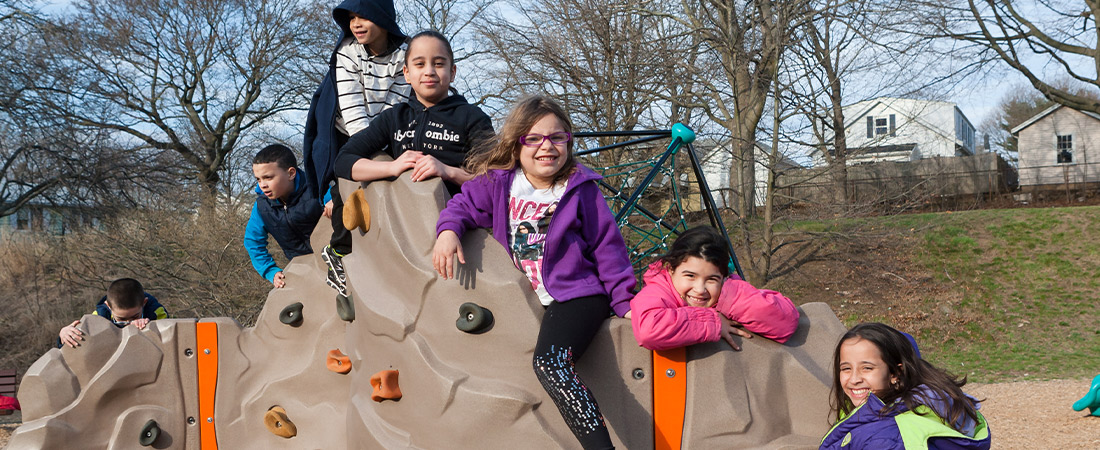
Powerful learning experiences often happen outside of the school day. EDC builds, implements, and evaluates out-of-school and nonformal programs that deliver core civic, educational, and life skills to young people in diverse environments.
In the United States, EDC’s support for out-of-school time (OST) and nonformal learning leverages children’s and youth’s strengths to help them succeed at school, engage in their communities, and lead productive and healthy lives. We design, evaluate, and provide technical assistance on high-quality OST programs that prepare young people for success—whether pursuing social and academic enrichment after school or leaving school and starting a first job.
Internationally, EDC develops and implements programs that support educational and economic opportunities for out-of-school youth. Working within the unique context of each country, we partner with governments, industry, and nongovernmental organizations to provide young people with the skills, knowledge, and opportunities they need to be market-ready and contribute to society.
Related Content
EDC Talks: How Do You Develop High-Quality Out-of-School-Time Programs?
Children can learn a lot from programs that take place outside of school hours.
4 Ways to Strengthen Youth Programs in Conflict and Crisis Areas
Building youth programs in unstable regions can be challenging. Here are four ideas for practitioners.
A Success Story in Senegal
Meet Adama Diedhiou, a participant in EDC’s workforce development program in Senegal.
A Second Chance at School in Mali
In Mali, accelerated education is helping thousands of children get back to school.
3 Ways to Stop the Summer Slide
Want to help kids keep learning this summer? Here are some tips for parents and caregivers.
New Entrepreneurs Launched in Rwanda
EDC’s workforce development efforts in Rwanda are helping young people build the skills for work.
Projects
Resources
Here are a few of our resources on out-of-school learning. To see more, visit our Resources section.
This qualitatitive study was designed to evaluate the employment and livelihoods status of several groups of participants in the Akazi Kanoze Youth Livelihoods Project after their graduation.
The following stories were developed through the support of USAID’s Core Education Skills for Liberian Youth (CESLY) program.
The investigations in Explore It! provide an experiential foundation for the development of concepts aligned with the national standards that are addressed in formal school curricula. Explore It!
The Learning Generation Report presents an action plan to deliver and finance an expansion of educational opportunity for more than 260 million children and youth who are not in school today.
This curriculum guide is designed as a tool to help teachers in autism inclusion schools facilitate an after-school or lunchtime “Maker Club.”
This Employability Study was conducted in Honduras to better understand the characteristics of those youth that are receiving the Career Readiness Certification (CRC) and to what extent youth have
This study of Interactive Radio Instruction (IRI), written for the World Bank by EDC staff, shows that radio is an accessible and effective tool for active learning inside and outside of the classroom.
This report captures the results of a retrospective study implemented by the team for the Akazi Kanoze Accelerated Learning Program in Rwanda.
This report summarizes the results of a review, conducted by external experts, of the quality and content of the Out-of-School Literacy Assessment (OLA).
This report details the results of an impact study that was conducted to better understand the contributions of the Mindanao Youth Development (MYDev) project to improving skills and outcomes for o
